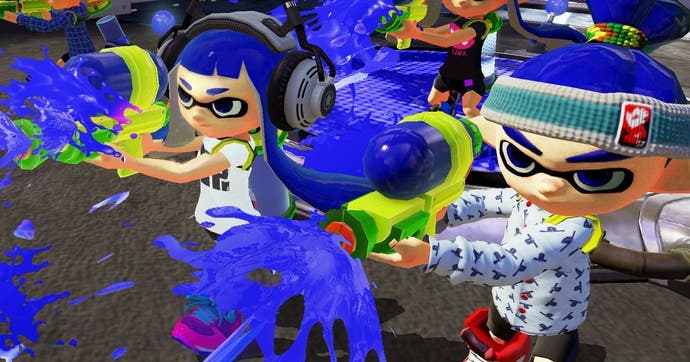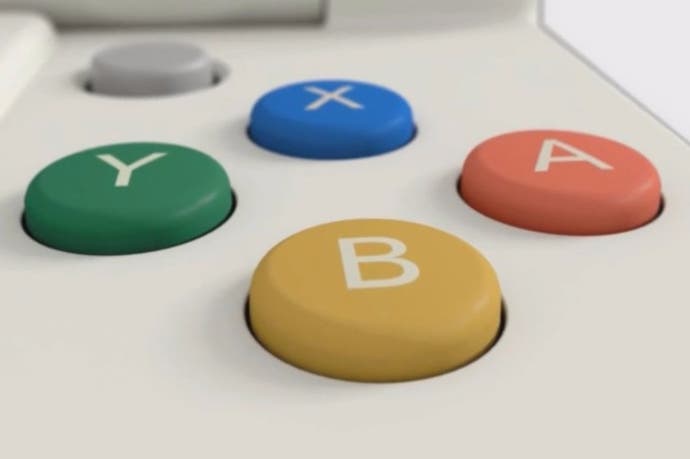Nintendo in 2015: A difficult year shows signs of promise for what's ahead
NXpectations.
2015 was always going to be a trying year for Nintendo, a transition period that would see it winding down its faltering home console and ageing handheld while it geared up its preparations for a new generation of hardware quietly in the background. With the untimely passing in July of Satoru Iwata, a man who had shaped Nintendo's outlook and embodied its playful spirit, 2015 will likely go down as one of the toughest years in the company's 126-year history.
It started so positively, too. The launch of the New Nintendo 3DS at the outset of the year saw a resounding modern success story for Nintendo enter its final chapter with style, fixing the legacy problems of the old hardware and backed up by stellar software such as Monster Hunter 4 Ultimate and Majora's Mask. Since then it's been quiet on the 3DS front, though, with Happy Home Designer, Tri Force Heroes and Paper Mario pleasant if inessential additions to the handheld's broad library later in the year.
The New Nintendo 3DS' launch was a happy consolidation of what's become an incredible machine, overcoming its own difficult first steps upon launch in 2011 to sell in excess of 50 million units. The Wii U's own milestones, in comparison, look pitiful - although it certainly sold well in Japan, bolstered by the double punch of Splatoon and Super Mario Maker, perhaps the most significant achievement was it finally surpassing sales of the Dreamcast, the 10.7 million lifetime units announced in October seeing it sneak past the 10.6 million consoles Sega shifted. The problem was, the Dreamcast lived in the limelight for a mere 18 months; it took the Wii U almost three years to reach the same goal.

It's no surprise that Nintendo has aggressive plans for its future, first outlined in a March conference in Japan that introduced some big notions with frustratingly few details. What's clear is that Nintendo's new generation is to be fought on multiple fronts - on mobile, through the partnership with DeNA, through the NX that, pundits believe, could replace both the 3DS and the Wii U and through non-traditional avenues such as its toys-to-life strand Amiibos (one of the few resounding positives to come out of 2015 for the company, with 21.10 million sold as of September, even if Nintendo is yet to figure out how to effectively pair them with its games).
The NX announcement cast a shadow over the Wii U for the remainder of the year, with a relatively slim first party offering raising suspicions that the big names and the big studios - such as Retro and Tokyo EAD - were preparing for what's next, and ensuring Nintendo doesn't suffer another console launch with a weak software line-up. The ongoing delay for Zelda Wii U all but guarantees it'll be making its way to NX, too, a split-release much like Twilight Princess saw before it on the GameCube and Wii.
The news of an HD remake of that particular Zelda on Wii U showed that Nintendo was keen to throw its faithful fans whatever morsels it could, but sometimes that didn't seem like quite enough. Games such as Mario Tennis, Animal Crossing: Amiibo Festival and Valhalla Game Studio's Devil's Third saw the quality control that was once such a valued part of Nintendo's outlook slip, providing a succession of thin, derivative games doing the Wii U's reputation no favours in its autumn days.
Such problems seem insignificant, though, at a time when Nintendo lost its figurehead, a man who had come to define a more approachable company since he took over from the austere Hiroshi Yamauchi in 2002. Satoru Iwata's time at the head of Nintendo saw it weather fallow times - the Wii U being a case in point - as well as fruitful ones, the delirious days of the Wii's success a high point in Nintendo's recent history. Iwata's influence can't be measured in sales figures, though. His real legacy is to be found in the incredible games Nintendo produces.
Xenoblade Chronicles X was a soaring, ambitious RPG that took inspiration from both eastern and western strands of the genre, ending up with a heady concoction that was Monolith Soft's own, and it was a testament to Iwata's relationships with other studios that such a talented developer was welcomed into the Nintendo family embrace.
Super Mario Maker saw Nintendo celebrate the 30th anniversary of one of the most important games in the company's history by giving it a convincingly modern makeover. It was a perfect celebration of the Mario series that placed the power in the player's hands, making as convincing a play for the Minecraft and YouTube generation as any of the platform holders did this year.
It was Splatoon that won the prize, though, a confident rebuttal to questions that have been asked of Nintendo's games for a long time. Here was an all-new IP that didn't lean on existing, well-worn characters. Here, too, was an online multiplayer game that didn't just run with the best of them this year - with its continued stream of post-launch content that kept people playing throughout the year, all for free, it was one of the most exciting multiplayer experiences around.
More importantly, it was a showcase for emerging talent within Nintendo, an example of what the new generation of developers is capable of when given a clean slate. The results were electrifying, the prospect of more new ideas propping up the next generation of Nintendo hardware truly exciting. It's the legacy of fun, enthusiasm and peerless craft manifest in games like Splatoon where Iwata's true legacy lies.
After a muted 12 months, understandably so at times, 2016 promises anything but for Nintendo. It's the year when we see its plans for NX, a mysterious, new and exciting prospect for the next generation, and when we learn about its plans for theme parks, to see how it will handle mobile and much else besides. 2015 was hard, then, both for Nintendo and for its fans, yet through the darkness there were enough glimmers of hope that suggest bright things could well be lying in wait.










